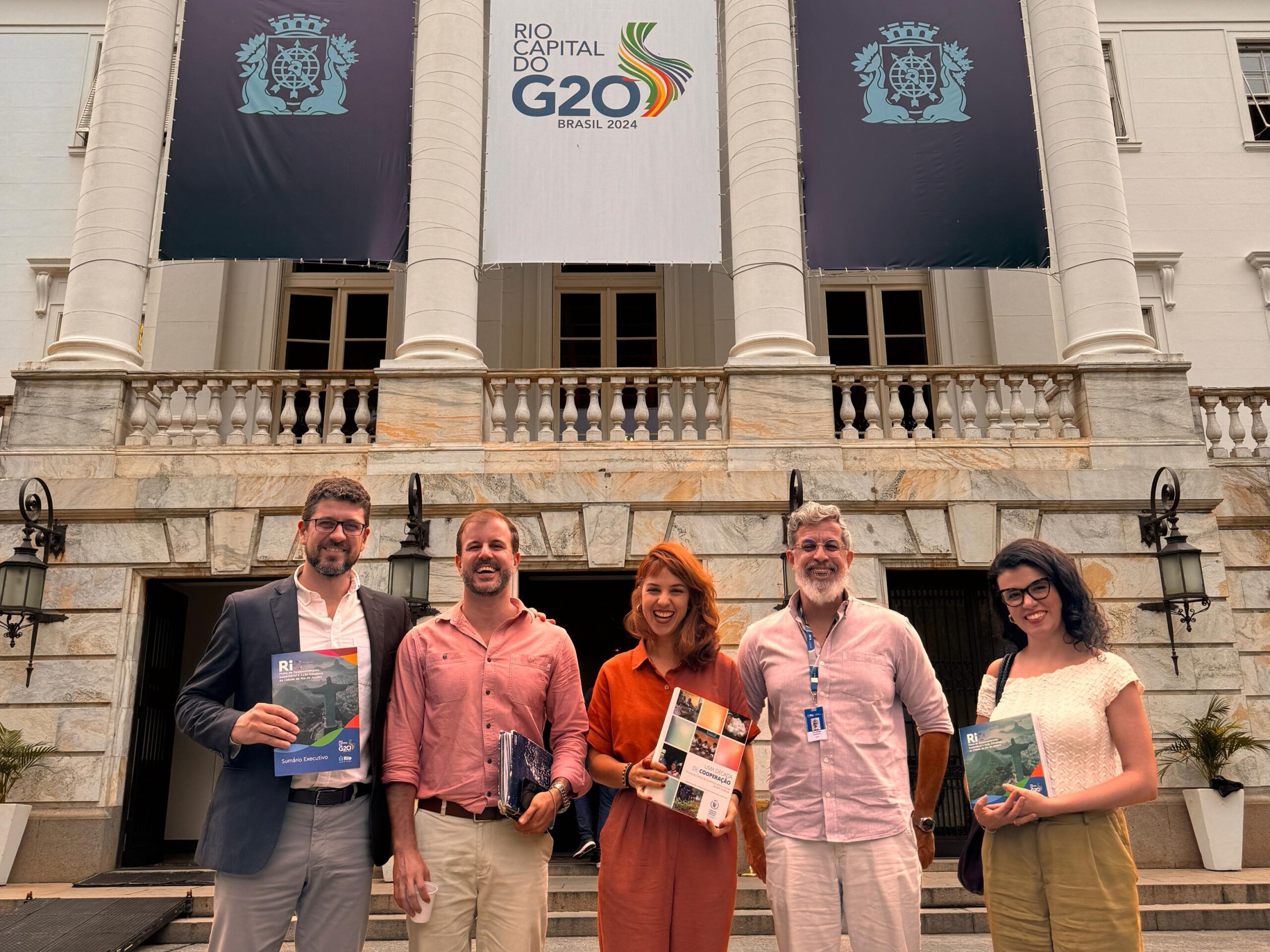
On 2 and 3 July, the World Food Programme (WFP) Centre of Excellence against Hunger took part in the Midterm Conference of T20 Brazil, one of the G20’s 13 engagement groups, in Rio de Janeiro. As well as taking part in the discussions, the Centre’s team wrote an article that was chosen as one of the 300 Policy Briefs that supported the recommendations of the T20 Brazil 2024 Communiqué, a document that will be delivered to the leaders of the G20 Brazil Sherpa and Finance Track at the end of the Midterm Conference. This is the first time that the document will be delivered in advance, with the aim of influencing the negotiations and the drafting of the joint declaration during the G20 Leaders’ Summit on 18 and 19 November 2024.
According to Vinicius Limongi and Maria Giulia Senesi, from the Programmes team at the WFP Centre of Excellence against Hunger, participating in the T20 Midterm Conference was a time to learn about the recommendations submitted in each of the T20 task forces, especially TF01, which addresses the fight against inequalities, poverty and hunger. “The recommendations put forward are in line with the main concerns of global governance and the work that the Centre does. They emphasise and link international cooperation, food and nutrition security through sustainable food systems and expanding access to social protection and basic services with the fight to end discrimination and inequality. Initiatives such as T20 are key to catalysing the G20’s objectives with important stakeholders such as think tanks and civil society organisations,” said Vinícius Limongi, Programme Officer at the WFP Centre of Excellence in Brazil.
The article “School feeding: a unique strategy to fight inequality, poverty and hunger and achieve the SDGs” points out that children today are the most vulnerable to the intersectoral crises of poverty, hunger, poor education and climate change. School feeding programmes present themselves as an essential strategy to combat these crises in a synergistic way, addressing several Sustainable Development Goals (SDGs) with multiple benefits and distributing food at scale to schoolchildren and young people.
However, countries’ fiscal challenges deprive 300 million children and their communities of the benefits of school feeding programmes. The article also shows that today, hundreds of millions of children live in poverty and malnutrition, 240 million of them are out of school and 1 billion are at high risk from the climate crisis. Brazil is an international benchmark when it comes to school feeding and, in partnership with the WFP Centre of Excellence, has been showing, through South-South cooperation, how it is possible to build sustainable and resilient school feeding programmes for other countries.
The document was written by the Centre of Excellence team in partnership with World Food Programme (WFP) staff from other countries, the Rockefeller Foundation, the UK’s School Health and Nutrition and the Global Partnership for Education.

Bilateral meetings in Rio de Janeiro
Bilateral meetings in Rio de Janeiro Throughout the week, the WFP Centre of Excellence against Hunger team in Brazil also took the opportunity to hold bilateral meetings with actors and potential partners in Rio de Janeiro. One of the highlights was Rio de Janeiro City Hall, with whom the Centre sought to align cooperation strategies within the framework of the G20 and the Rio de Janeiro City Sustainable Development and Climate Action Plan.




